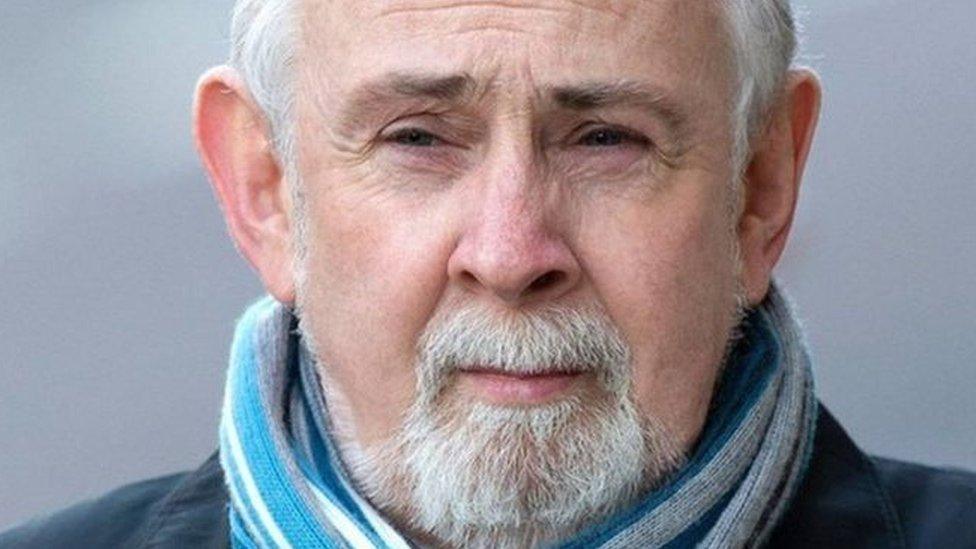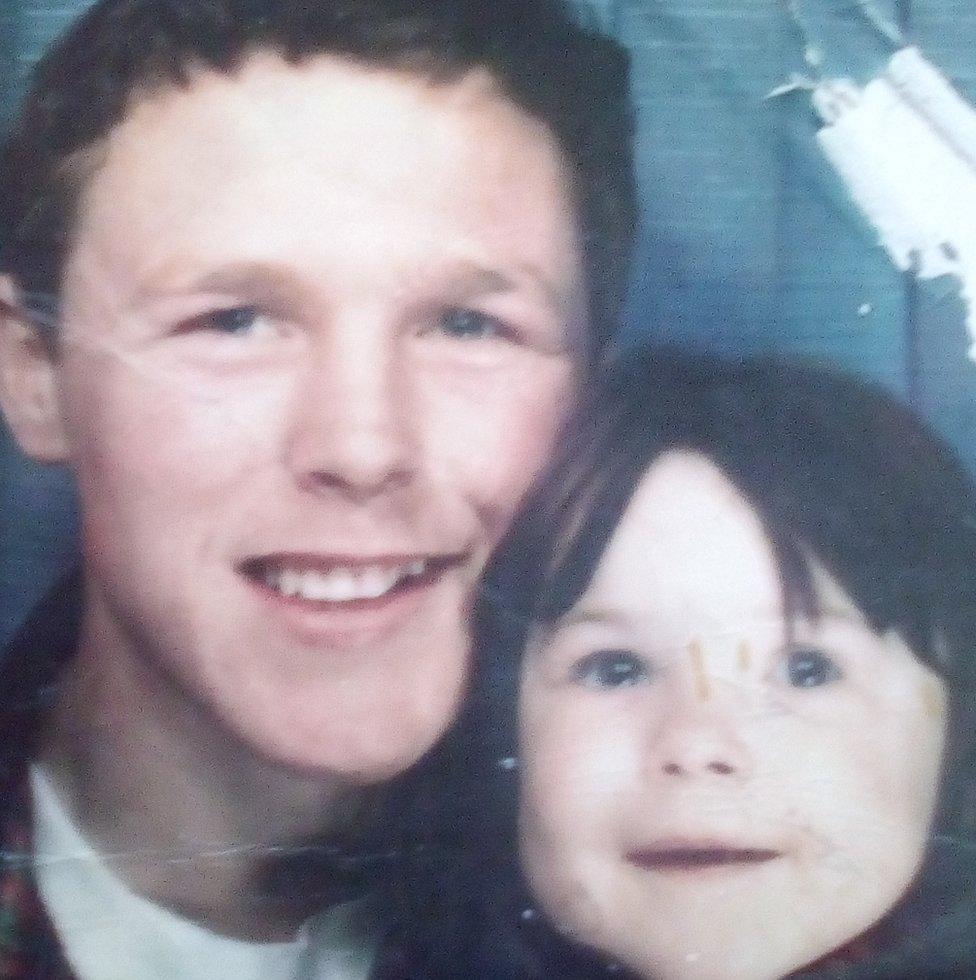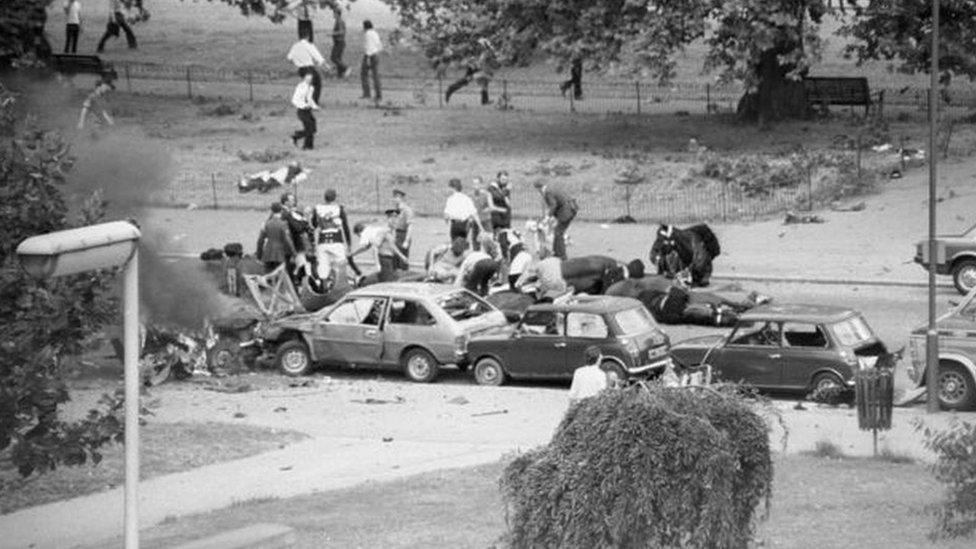Hyde Park bombing: Court reserves judgement in civil case
- Published

A judge ruled Johyn Downey was an "active participant" in the attack
A High Court judge has reserved judgement in a civil case brought by relatives of four British soldiers killed in the Hyde Park bombing.
The family members are seeking substantial damages against John Downey.
Last year a High Court judge ruled Downey was an "active participant" in the 1982 IRA attack, which left 31 other people injured.
It followed the collapse of a criminal case at the Old Bailey in 2014.
Downey, from County Donegal, did not play any part in last year's trial but filed a written defence denying any involvement in the attack.
The court heard he had been notified of the damages assessment taking place this week but he had not responded and is not involved in the hearing.

Sarah-Jane Young as a child pictured alongside her father, L/Cpl Jeffrey Young

Sarah Jane Young, the daughter of one of the victims, is seeking £750,000 for psychiatric damage she suffered as a result of her father's death.
Ms Young, who was four when her father was killed, had been in a nursery in the barracks nearby and heard the explosion.
Squadron Quartermaster Cpl Roy Bright, 36, Lt Dennis Daly, 23, Trooper Simon Tipper, 19, and L/Cpl Young, 19, were killed by a car bomb as they rode through the central London park to attend the Changing the Guard ceremony.

Four Household Cavalry soldiers died in the Hyde Park bomb attack
The car bomb, which was packed with nails and had been left in South Carriage Drive, was detonated by remote control, killing the four Household Cavalry soldiers as they paraded from their barracks to Buckingham Palace.
Two were killed instantly while L/Cpl Young and Cpl Bright died within days.
Seven horses had to be put down and another horse, Sefton, survived terrible injuries.
Following a two-day hearing, held remotely, Mr Justice Martin Spencer will deliver his judgement on the level of damages on Friday at 14:00 GMT.